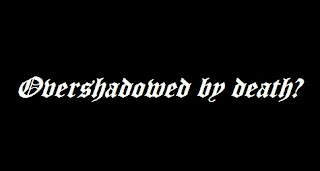My Sisters and Brothers:
Today’s Scriptures speak of those who were “sitting in darkness” and who were “dwelling in a land overshadowed by death.” According to Matthew the Evangelist, such people, who were also spoken of by the great Prophet Isaiah, were liberated when Jesus, “the light,” began his ministry of preaching and healing in “the region of Zebulun and Naphtali” (see both Isaiah 8:23-9:3 and Matthew 4:12-17).
That area can be found along the eastern shores of the Lake of Galilee, and was also the location of the ancient town of Capernaum, the place where Jesus began his public ministry. It was in that little fishing village where he first effectively preached, healed the sick, and forgave people of their sins. As Jesus launched his ministry there, the Gospel tells us he called upon the people “to repent, for the kingdom of heaven was at hand.” (cf. Matthew 4:17). For that reason, many people of Capernaum, and from “the region of Zubulin and Naphtali,” responded to his preaching, and because of their “repentance from sin,” they were “saved” by God; this is what “shed the light upon them,” and what “freed them from darkness and death.”
In order to understand more clearly who such “saved” people were, let’s also recall some other words from Isaiah found in the Gospels. Jesus quoted the Prophet when he said he himself was “the one anointed to bring glad tidings to the poor, to proclaim liberty to captives, to give sight to the blind, to let the oppressed go free, and to proclaim a year acceptable to the Lord” (cf. Luke 4:18). It was such people, those who were most “marginalized” by others, whom Jesus very much hoped “to save from darkness and death.” And therefore, it seems to me the cause of that “darkness and death” was not only or necessarily their own malice or sin, but also included circumstances and/or maltreatments that until then, and for most of them, had been beyond their control. Jesus had come “to set all people free.” In this sense then, and for many, “repentance from sin” was simply newfound control over their own lives, and this was made possible through the power of Jesus’ message and ministry. I believe this is how we can best understand Jesus’ mission “to lift up the lowly.” Therefore, those who were “saved by Jesus” were the ones empowered by him; such people were then restored to emotional and/or physical health, and they also were enabled to reject any type of sin for which they might have been guilty. But even more, they were also freed from victimization and abusive oppression previously threatening “darkness and death” in their lives.
If all of this is so, then it seems to me we don’t have to look too far in our own time in order to find metaphorical inhabitants of “the regions of Zebulun and Naphtali.” Today, this would include all of those “marginalized people” around us who likely “sit in darkness” and who are probably “overshadowed by death.” Such people can be found by merely glancing at newspaper headlines, the television news, and/or social media feeds; we certainly come in contact with them, in one way or another and every day, as we go about the business of our lives. I believe it’s our responsibility, as followers of the Lord Jesus, and as best as we are able, “to bring the light to them, to save them and to set them free.”
We can do this by championing causes that promote the emotional and physical health of the poor and the needy. We can do this by reaching out with compassion and action to improve the lives of the homeless, the mentally ill, drug addicts, alcoholics, and those who’ve in any way “lost their way.” We can do this by promoting the value of every human life, “from the womb to the tomb.” We can do this by standing up for the rights of those who have been abused, victimized and/or oppressed in any way. And we can do this in so many other countless ways as well . . .
My friends, let’s not tire in our efforts to be part of the “liberating” force of Jesus Christ! As we work for justice and well-being in our world, and as we seek “to free others from darkness and death,” let’s never cease to help them “to see the great light.”
Praise God! Friar Timothy

1 comment:
Thank you for doing this for us. Your homilies are great and right on. Kurt
Post a Comment